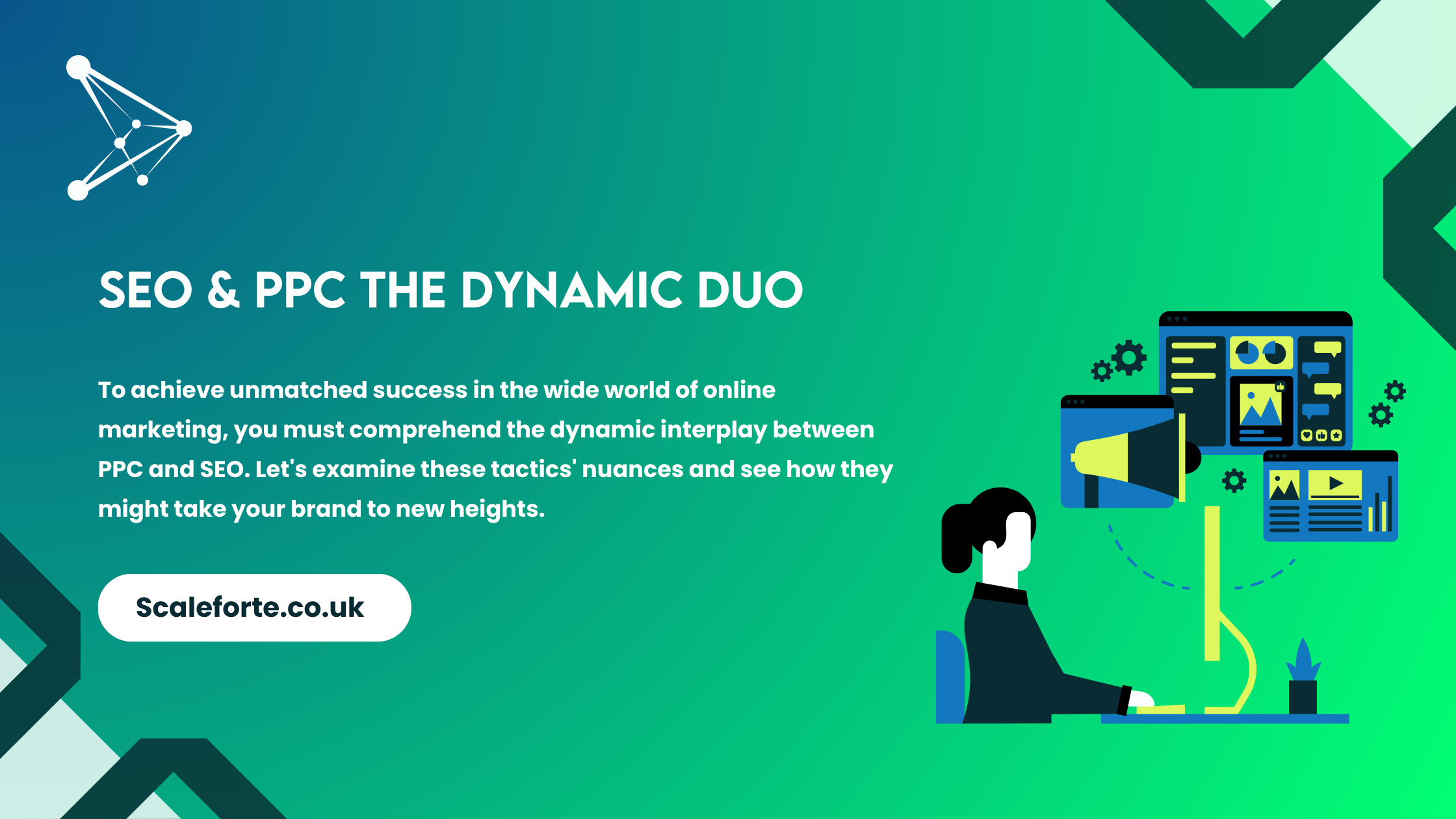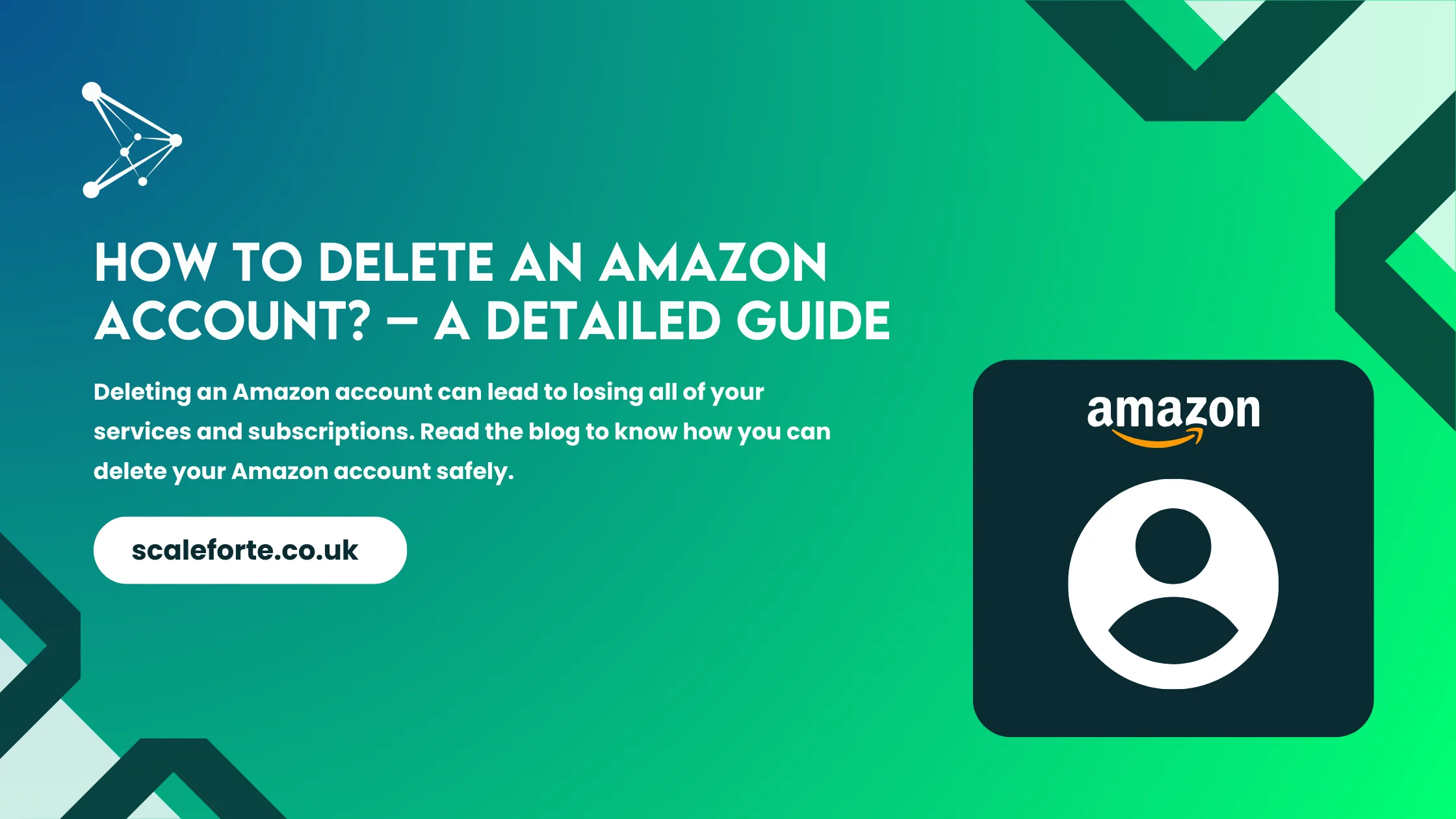SEO & PPC: the dynamic duo your business needs

Within the dynamic field of digital marketing, two prominent entities that generate traffic and augment online exposure are Pay-Per-Click (PPC) and Search Engine Optimisation (SEO). To achieve unmatched success in the wide world of online marketing, you must comprehend the dynamic interplay between PPC and SEO. So what is SEO & PPC? Let’s examine these tactics’ nuances and see how they might take your brand to new heights.
What is PPC (pay per click)?
One unique and effective digital advertising approach that gives marketers the ability to market their goods and services strategically is pay-per-click, or PPC. PPC advertising functions on a different payment model than traditional forms of advertising, where marketers only get charged when users click on their adverts. This creative method makes sure that companies are paying for real interaction directly, which makes it an affordable and quantifiable solution.
Purchasing website visits is the core idea of pay-per-click advertising. Advertisers place bids on particular keywords associated with their sector, goods, or services. The PPC adverts appear prominently at the top or bottom of the search engine results page (SERP) when consumers conduct a search using keywords that correspond with these search terms on a search engine like Google.
Advantages of Running PPC Ads
1) Instant Visibility:
Pay-Per-Click, or PPC advertising makes sure that advertisements are displayed on search engine results pages (SERPs) as soon as possible, giving firms rapid visibility. Because PPC offers instant visibility, as opposed to organic SEO, it’s perfect for time-sensitive campaigns and events. Businesses may quickly and efficiently reach their audience by securing prominent ad slots through real-time auctions and tailored keyword bidding. One major benefit of PPC is its immediacy, which makes it a vital tool for companies looking to create a quick impression in the cutthroat online market.
2) Credibility and Trust:
The perceived neutrality and dependability of the material on websites that rank organically lends them credibility and trustworthiness. Users typically consider a website to be reliable when it ranks highly in search engine results because it has earned that place through the relevancy and calibre of its information. Search engines interpret organic rankings as a recommendation, suggesting that the website offers worthwhile content or merchandise. Users feel more confident about the website because they think search engines have acknowledged its authority on its own thanks to this tacit endorsement.
3) Targeted Advertising:
PPC’s capacity for targeted advertising highlights how well it can reach specific audience segments. Advertisers can target particular demographics, geographic regions, and device preferences with their messaging by using PPC campaigns. Ads are shown to a demographic that is most likely to be interested in the goods or services being advertised thanks to this exact targeting. PPC gives marketers the ability to carefully deploy their resources, optimising the relevancy of their adverts, whether it’s by narrowing down the target based on age, interests, or geography. This focused strategy raises the possibility of attracting the attention of prospective clients who are more likely to interact with the material while also improving the effectiveness of advertising spend.
What is SEO (Search Engine Marketing)?
Unlike the immediate impact of paid strategies, SEO, or Search Engine Optimization, involves a meticulous and sustained effort to optimise a website for organic visibility in search engine results. This multifaceted strategy encompasses both on-page and off-page tactics, combining elements like keyword optimization, content quality enhancement, and technical improvements to create a website that is not only relevant but also appealing to search engines, notably Google.On the on-page front, SEO involves refining individual web pages to align with search engine algorithms.
This includes optimising meta tags, headers, and content to ensure that the website is easily understood by search engine crawlers. Simultaneously, off-page SEO tactics involve activities beyond the website itself, such as building high-quality backlinks, establishing a strong social media presence, and engaging in online community participation. These efforts collectively contribute to the enhancement of a website’s credibility and authority in the eyes of search engines.
Advantages of Implementing Right SEO Techniques
1) Sustainable Results:
One of the main benefits of Search Engine Optimisation (SEO) over Pay-Per-Click (PPC) advertising is the notion of sustainable results. In contrast to PPC advertising, which has an instantaneous but fleeting effect, SEO is a long-term investment that, when done well, can have enduring advantages. The key to long-term success with SEO is its capacity to develop organic traffic over time and progressively achieve higher ranks in Search Engine Results Pages (SERPs). In order to comply with search engine algorithms, the procedure entails painstaking optimization efforts that include keyword research, content refining, and technical improvements.
2) Credibility and Trust:
One major benefit of obtaining a prominent position in Search Engine Results Pages (SERPs) using organic means is the correlation that has been observed between credibility, trust, and organic search rankings. Users tend to consider websites that rank organically as more reliable and trusted sources of information or services. This notion stems from the belief that search engines, like Google, have judged the quality and relevancy of the material on these websites using algorithms, which has resulted in their higher rankings. Because of the search engine’s implicit endorsement, users tend to view websites with higher results as more trustworthy and authoritative in their respective industries.
3) Cost-Effective Over Time:
Over time, SEO may be very cost-effective because it can help build a strong and long-lasting online presence. While there may be a delay in the beginning stages of applying SEO methods, there are significant long-term benefits. A website gradually moves up the search results page when it is optimised for search engines, with an emphasis on factors including technical characteristics, relevancy, and high-quality content. This natural expansion helps to steadily raise visibility, which in turn leads to an increasing amount of natural traffic. In contrast to pay-per-click paid advertising approaches, SEO’s long-term effects guarantee that an initial investment will continue to yield returns.
The interlinked SEO & PPC
Pay-Per-Click (PPC) and Search Engine Optimisation (SEO) have a symbiotic relationship that develops into a strategic partnership that shows the full potential of these two effective marketing techniques working together. A dynamic marketing mix’s foundation is made up of PPC and SEO together, which works like magic to increase an organisation’s online visibility and impact. The foundation of this partnership is keyword synergy, in which high-performing keywords are identified through PPC campaign analytics and effortlessly integrated into the SEO plan. This seamless connection guarantees a focused and standardised approach, utilising the popularity of particular keywords in PPC to boost organic visibility and build a comprehensive and influential online presence.
The relationship continues into data-driven decision-making, where the abundance of data produced by PPC campaigns serves as a catalyst for the development of SEO and PPC strategies. The examination of user behaviour, preferences, and conversion statistics serves as a guide for both channels’ content development and optimisation. Through this iterative approach, marketing strategies are made to be both flexible and adaptive to changing market dynamics, as well as in line with user preferences.
Choose Scaleforte to Manage your SEO & PPC
To sum up, the mutually beneficial association between PPC and SEO turns their combination into a potent and well-planned marketing mix. This cooperative synergy—which includes data-driven decision-making, brand consistency, and keyword integration—boosts the efficacy of PPC and SEO together, resulting in a cohesive strategy that connects with consumers and optimises a brand’s online success. This strategic integration is not only advantageous, but also necessary to keep a brand ahead of the curve in the digital sphere, increase visibility, and drive traffic in the very competitive digital landscape.
If you want to hire a top SEO & PPC agency in the United Kingdom, consider contacting Scaleforte. Our SEO & PPC experts have worked with various businesses to provide outstanding results at cost-effective budgets. Book a free meeting with one of our representatives or request a to quote to know more about our SEO & PPC services.
Have any question?
Do not hesitate to contact us. We’re a team of experts ready to talk to you.




